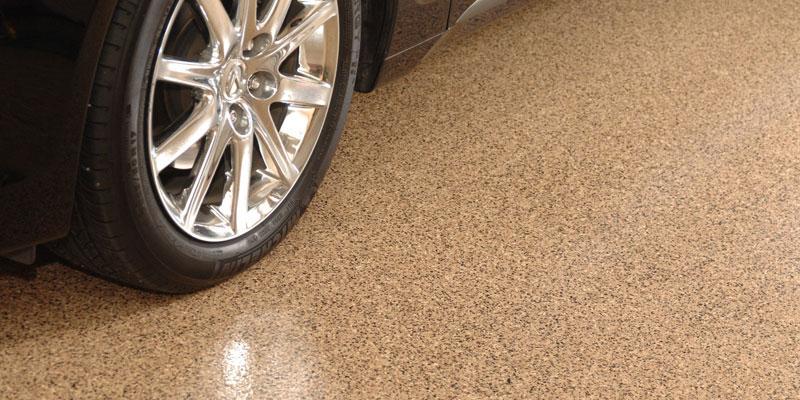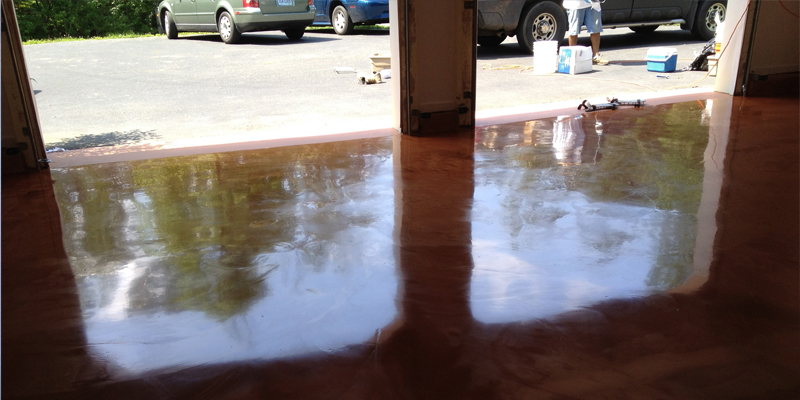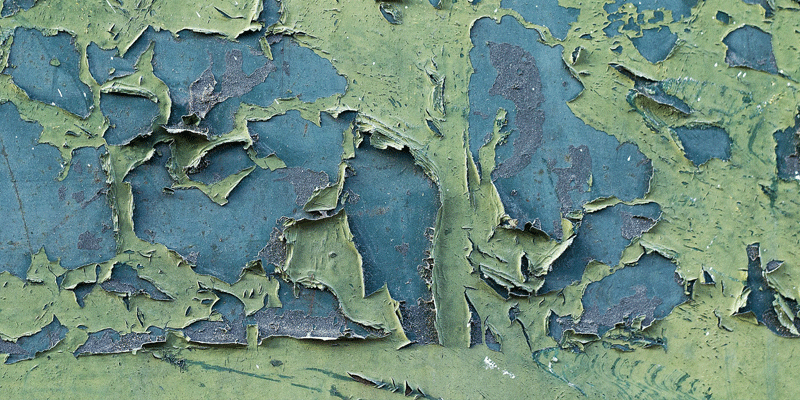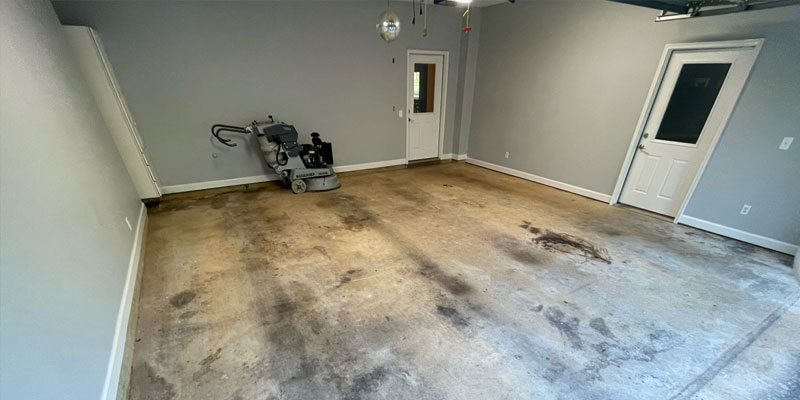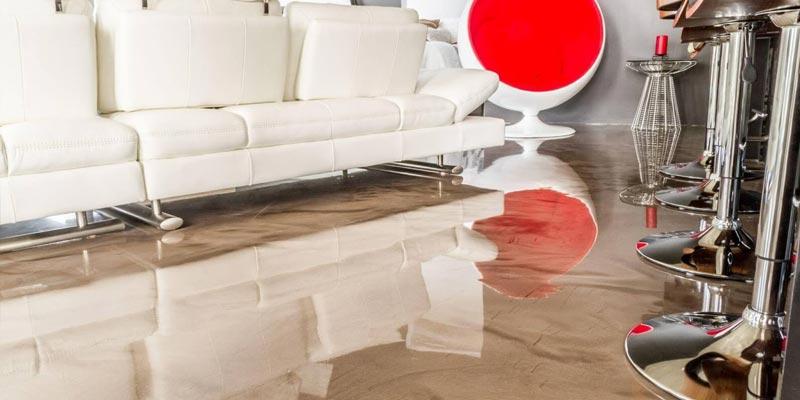Which Epoxy Floor Thickness Is Right For Me?
7 Creative Ways You Can Decorate Your Home With Epoxy
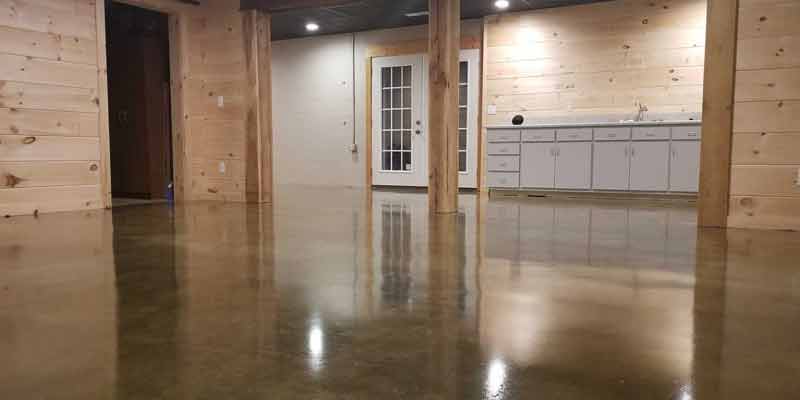
Does your concrete need a little help? If it’s cracked, chipped, or generally looks worse for wear, epoxy flooring can give it new life. But before you start the project, you need to know which epoxy floor thickness is right for your needs. This article will have all the basic facts about epoxy flooring every property owner should know, as well as the different thickness levels available.
What is an Epoxy Floor?
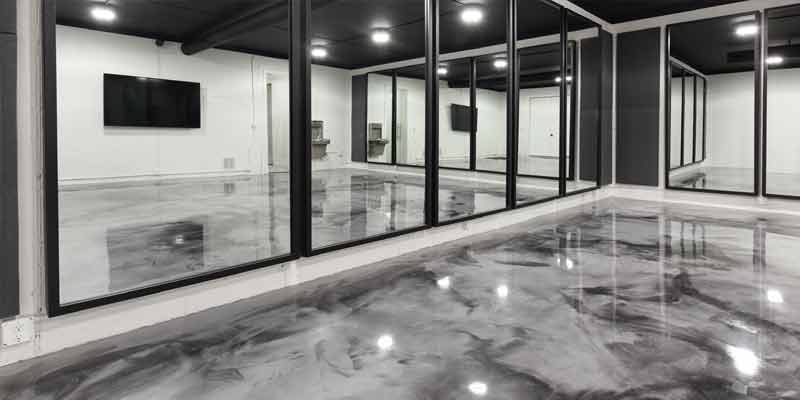
Epoxy flooring is a type of floor coating that’s made up of several different components. The base is usually epoxy resin, with a hardener added to cure the material. Once it’s cured, epoxy flooring is one of the most durable types of flooring you can get. It’s resistant to scratches, staining, and fading, and it can even stand up to heavy foot traffic and machinery.
This material is so tough, in fact, that it’s often used in industrial and commercial settings. But epoxy flooring isn’t just for fact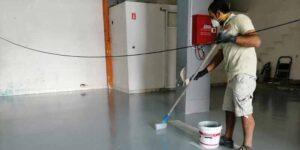 ories and warehouses anymore. It’s becoming increasingly popular in residential settings as well, thanks to its low maintenance and high durability.
ories and warehouses anymore. It’s becoming increasingly popular in residential settings as well, thanks to its low maintenance and high durability.
Epoxy Floor Thickness Levels
Now that you know a little more about epoxy flooring, let’s talk about thickness. This material is available in various thickness levels, from thin mils to thick coatings. The right thickness for your floor will depend on a few different factors, including:
The condition of your concrete – If your concrete is in good condition, you may only need a thin layer of epoxy to protect it. But if it’s cracked or damaged, you’ll need a thicker coating to cover up the imperfections.
The amount of traffic your floor gets – If your floor sees a lot of foot traffic, you’ll need a thicker epoxy coating to protect it from wear and tear.
Your budget – Epoxy flooring is available at a wide range of prices, so you can find an option that fits your budget.
Now that you know the different factors to consider when choosing an epoxy floor thickness, let’s take a look at the different options available.
Mil Thicknesses
The thinnest type of epoxy flooring is called a mil, and it’s typically only about 1-2mm thick. This is enough to provide a basic level of protection for your concrete, but it will not stand up to heavy traffic or machinery. Mil epoxy is a good choice for residential garages that don’t see a lot of use.
Small Chip Flooring
If you’re looking for something with a little more personality, small chip flooring might be the right option for you. This type of epoxy is made with small chips or flakes of color added to the base material. The chips can be made from stone, glass, or metal, and they add both visual interest and extra durability to the floor.
Small chip epoxy is available in thicknesses ranging from 3-4mm. This is enough to protect your floor from light foot traffic and occasional spills, but it will not stand up to heavy use.
Quartz Flooring
Quartz flooring is a good option if you need a durable floor that can stand up to heavy traffic. This type of epoxy is made with quartz sand added to the base material. The quartz provides extra durability and traction, making it a good choice for areas that see a lot of foot traffic.
Quartz epoxy is available in thicknesses ranging from 4-6mm. This is enough to protect your floor from heavy traffic and occasional spills, but it’s not going to stand up to constant exposure to chemicals or abrasives.
Metallic Flooring
Metallic flooring is another option for those who need a durable epoxy floor. This type of epoxy is made with metallic pigments added to the base material. The pigments add extra durability and a unique look to the floor.
Metallic epoxy is available in thicknesses ranging from 4-6mm. This is enough to protect your floor from heavy traffic and occasional spills.
High Build Flooring
If you’re looking for the most durable type of epoxy flooring, a high build is a way to go. This type of epoxy is made with multiple layers of material, each one cured before the next is applied. High-build epoxy floors are typically 8-10mm thick, making them almost indestructible.
High build epoxy is a good choice for areas that see heavy traffic or exposure to chemicals and abrasives. This type of flooring is also good for hiding imperfections in the concrete.
Should I DIY My Epoxy Floor?
If you’re planning to install an epoxy floor in your home, you may be wondering if you should do it yourself or hire a professional. The answer will depend on a few different factors, including:
The size of your project – If you’re only doing a small area, like a garage or basement, DIY may be the way to go. But if you’re doing a large area, like commercial space, it’s best to hire a professional.
Your level of experience – If you’ve never done an epoxy floor before, it’s best to leave it to the pros. But if you have some experience with this type of project, DIY may be an option for you.
Your budget – Hiring a professional to install your epoxy floor will cost more than doing it yourself, but it may be worth the investment if you want a high-quality job.
The type of flooring you’re using – If you’re using a high build epoxy, it’s best to hire a professional. But if you’re using a thinner flooring, like mil epoxy, DIY may be an option.
So, which epoxy floor thickness is right for you? It all depends on your needs and budget. If you need a durable floor that can stand up to heavy traffic, choose a 4-6mm thickness. For a more budget-friendly option, choose a thinner mil epoxy. And for an easy DIY project, consider small chip epoxy. Whatever you choose, be sure to follow the manufacturer’s instructions for the best results.

